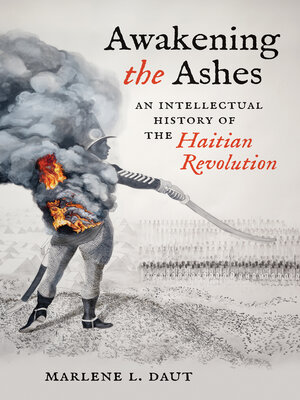
Sign up to save your library
With an OverDrive account, you can save your favorite libraries for at-a-glance information about availability. Find out more about OverDrive accounts.
Find this title in Libby, the library reading app by OverDrive.



Search for a digital library with this title
Title found at these libraries:
| Library Name | Distance |
|---|---|
| Loading... |
The Haitian Revolution was a powerful blow against colonialism and slavery, and as its thinkers and fighters blazed the path to universal freedom, they forced anticolonial, antislavery, and antiracist ideals into modern political grammar. The first state in the Americas to permanently abolish slavery, outlaw color prejudice, and forbid colonialism, Haitians established their nation in a hostile Atlantic World. Slavery was ubiquitous throughout the rest of the Americas and foreign nations and empires repeatedly attacked Haitian sovereignty. Yet Haitian writers and politicians successfully defended their independence while planting the ideological roots of egalitarian statehood.
In Awakening the Ashes, Marlene L. Daut situates famous and lesser-known eighteenth- and nineteenth-century Haitian revolutionaries, pamphleteers, and political thinkers within the global history of ideas, showing how their systems of knowledge and interpretation took center stage in the Age of Revolutions. While modern understandings of freedom and equality are often linked to the French Declaration of the Rights of Man or the US Declaration of Independence, Daut argues that the more immediate reference should be to what she calls the 1804 Principle that no human being should ever again be colonized or enslaved, an idea promulgated by the Haitians who, against all odds, upended French empire.
In Awakening the Ashes, Marlene L. Daut situates famous and lesser-known eighteenth- and nineteenth-century Haitian revolutionaries, pamphleteers, and political thinkers within the global history of ideas, showing how their systems of knowledge and interpretation took center stage in the Age of Revolutions. While modern understandings of freedom and equality are often linked to the French Declaration of the Rights of Man or the US Declaration of Independence, Daut argues that the more immediate reference should be to what she calls the 1804 Principle that no human being should ever again be colonized or enslaved, an idea promulgated by the Haitians who, against all odds, upended French empire.







